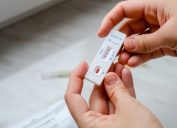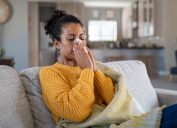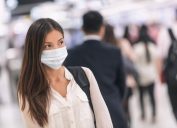CDC Investigating Potential New Symptoms of Spiking JN.1 COVID Variant
The agency is looking into more unusual signs, in light of recently published data.

The latest and most prevalent COVID-19 variant is JN.1, which accounted for roughly 62 percent of currently circulating variants as of Jan. 5, the Centers for Disease Control and Prevention (CDC) said in a recent update. On a more troubling note, the agency noted that COVID-19 hospitalization spiked by 20.4 percent for the week ending Dec. 30, 2023, with related deaths also up by 12.5 percent. The CDC did reassure the public that while JN.1 could be "more transmissible," it doesn't seem to cause more severe disease than other variants. However, as JN.1 is spiking, there has been discussion about potential new COVID symptoms.
RELATED: COVID Now Causing These Unusual Symptoms, New Data Shows.
As Best Life previously reported, recent data from the U.K. Office for National Statistics (ONS) identified two unusual symptoms that may be the result of the COVID-19 virus. According to survey findings recorded in early Dec. 2023, 10.8 percent of respondents reported struggling to sleep, while 10.5 percent reported worry or anxiety. (Researchers did acknowledge that participants reported symptoms "regardless of the cause and testing status," meaning they may not have been directly related to COVID.)
The CDC is now addressing the data, with a spokesperson telling Best Life, "There is no data that would indicate JN.1 infection produces different symptoms from other variants. In general, symptoms of COVID-19 tend to be wide ranging with all variants."
When it comes to anxiety and insomnia, however, the agency said those may actually be symptoms of COVID in general—as opposed to specific signs of JN.1.
"There have been reports that COVID-19 may be associated with insomnia and anxiety in some patients, and therefore that can be a general symptom of infection and not related to the variant," the spokesperson said. "[The] CDC is constantly researching the effects of COVID variants and will update the public as we learn more."
It's worth noting that the U.K. data also didn't break results down by variant, so it's impossible to say whether the symptoms were directly connected to JN.1. Still, in the Jan. 5 update, the CDC did note that JN.1 is the most prevalent variant around the world and is the dominant variant in Europe.
In terms of overall symptoms, the CDC spokesperson also told Best Life that symptoms and their severity vary depending on "a person's immunity and overall health rather than what causes the infection." But while every case might be different, there are a few symptoms that are the most common right now. Read on to find out what could signal a COVID infection.
RELATED: These Are the 9 Symptoms of the New JN.1 COVID Variant, Doctors Say.
1
Sore throat
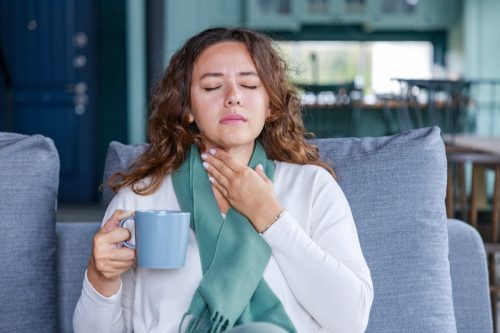
In recent months, doctors have pointed to a sore throat as one of the first symptoms to appear with a COVID infection.
2
Congestion
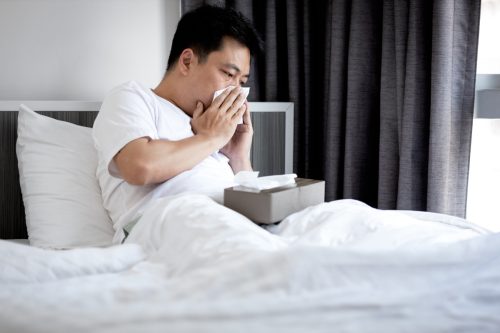
Congestion is also a common COVID symptom, which often appears after your sore throat, William Schaffner, MD, a professor of infectious diseases at Vanderbilt University Medical Center, told Parade last month.
A runny nose could also show up after your sore throat, Schaffner said.
RELATED: 15-Year-Old Girl Suffers First-Ever Vocal Paralysis From COVID in Teens.
3
Loss of smell or taste
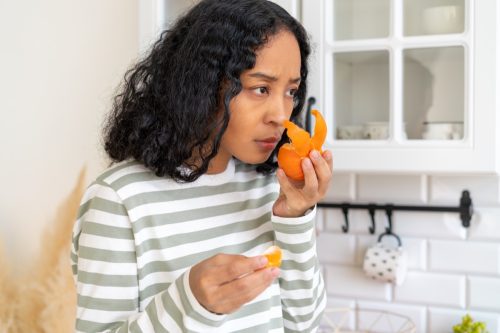
While this particular symptom has varied throughout the pandemic, new loss of taste and smell are once again solid indicators that you may have COVID, per the CDC.
4
Cough
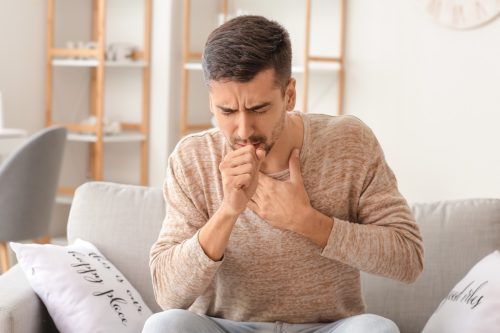
If you start to feel under the weather and develop a cough, don't leave it unchecked. In Dec. 2023, amid the rise of another variant (HV.1), Linda Yancey, MD, infectious disease specialist at Memorial Hermann Hospital, told Parade that symptoms were starting to look more and more like other upper respiratory tract infections, most of which include a cough.
RELATED: 2 COVID Symptoms Now Tied for Most Common Virus Signs, Doctors Say.
5
Fatigue
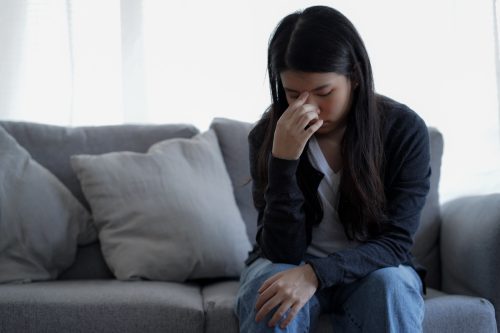
Feeling tired and lethargic? It could definitely be the result of COVID, according to the CDC.
The CDC stresses the importance of vaccines.
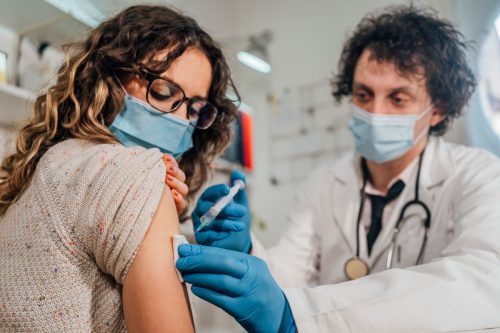
While they may be among the most common, these are far from the only COVID symptoms. According to the CDC, you could also experience muscle or body aches, headache, nausea or vomiting, diarrhea, and shortness of breath, among others.
The CDC urges you to get an updated vaccine to protect against severe infection from JN.1 and other variants. You should also test if you have any of these respiratory symptoms or if you've been exposed to the virus, the agency says.
RELATED: For more up-to-date information, sign up for our daily newsletter.
Best Life offers the most up-to-date information from top experts, new research, and health agencies, but our content is not meant to be a substitute for professional guidance. When it comes to the medication you're taking or any other health questions you have, always consult your healthcare provider directly.


